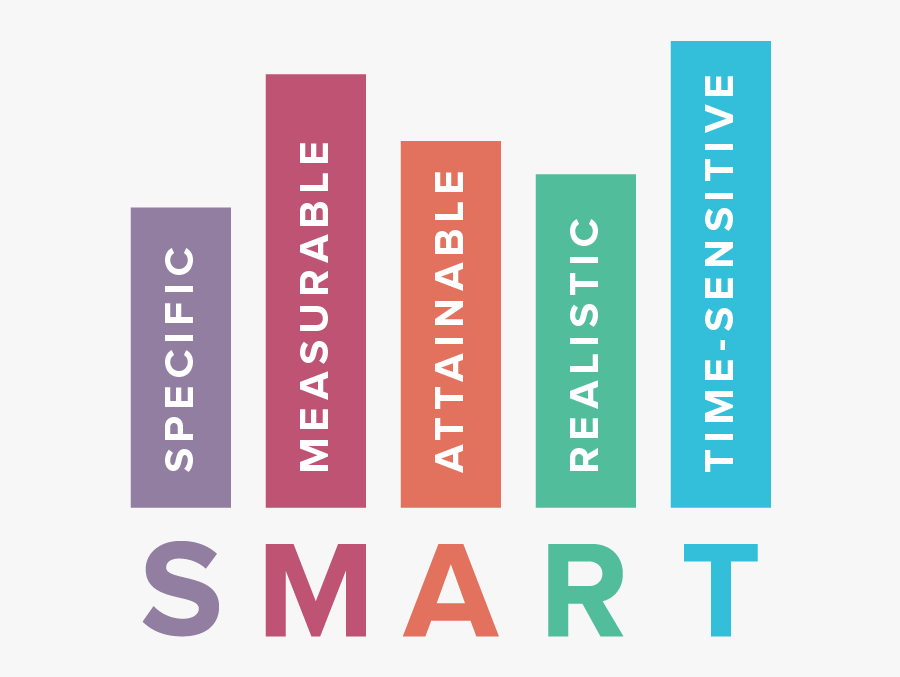Once you feel ready to make changes to your lifestyle, the next step is setting what your goals will be. They can be anything you want: weight loss, building strength at the gym, eliminating medications, or all of the above! However, many set goals based on what they think they SHOULD be verses what’s realistic. Setting goals that don’t make sense will just set you up for frustration and not being able to achieve them. If you don’t achieve what you set out to do, it’s easy to just stop and give up! Of course, this is what we want to avoid. Work with your dietitian to achieve attainable, reasonable, and time appropriate goals. Change takes time, so allow yourself the time and practice. For example, if you gained 20 pounds over a period of 3 years, you won’t be able to lose all 20 pounds in 1 month!
Set SMART Goals
A good goal-setting strategy is the SMART goal checklist. Be sure that your weight-loss goals meet the following criteria:
- Specific: A good goal includes details, such as what you will do, how long you will do it, and when you will do it. For example: A goal to walk 30 minutes after work every day.
- Measurable: If you can measure a goal, then you can determine how successful you are at meeting your goal. For example: A goal of incorporating more vegetables into lunches and dinners.
- Attainable: An attainable goal is one that you have enough time and resources to achieve. This can help you to set goals that are achievable and sustainable. For example: You don’t have time to go to the gym 1 hour per day, so a more realistic goal would be 3 days per week for 30 minutes each time.
- Relevant: Don’t set goals that someone else wants you to achieve. Ask yourself what’s most important to you and then determine your goals. For example: If weight loss is a priority, then your dietitian can help you come up with realistic goals and a reasonable plan on how to achieve them.
- Time-limited: Giving yourself a time limit can motivate you to get started and stay on course.
Long-term vs. Short-term Goals
Short-term goals will help you to start making changes and stay motivated, which will then lead to long-term success. Long-term goals help you to focus on the big picture. You will hear us dietitians talk ALL the time about lifestyle changes, not diets! Shifting your thought process will help tremendously.
Allow For Setbacks
Setbacks are a natural part of behavior change. Life happens! If you have had a challenging period of time, don’t waste time being so hard on yourself. Just take steps to move forward day by day. This could also become a time for you to re-evaluate your goals and adjust them as needed.


About the author